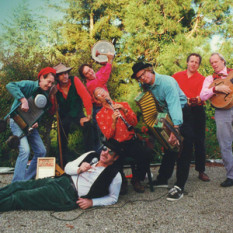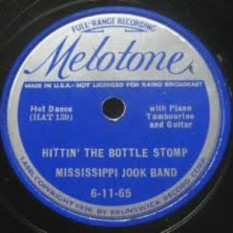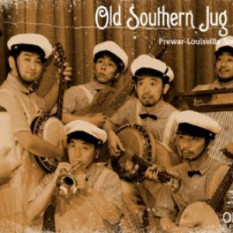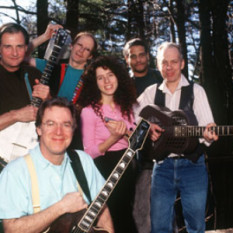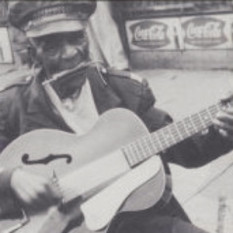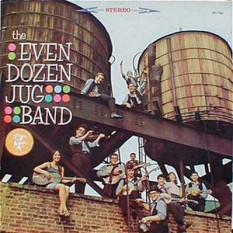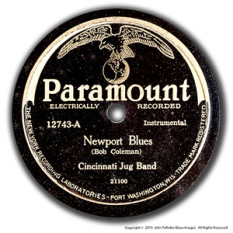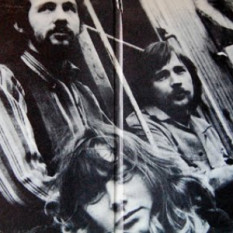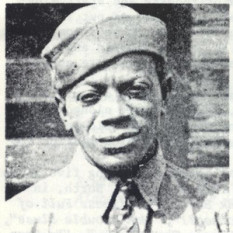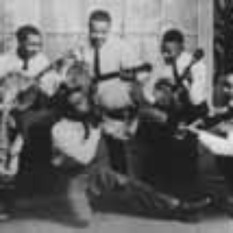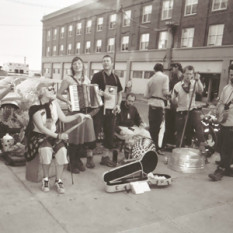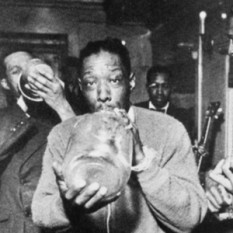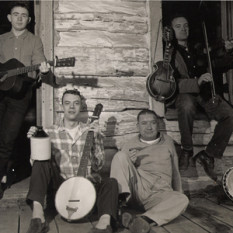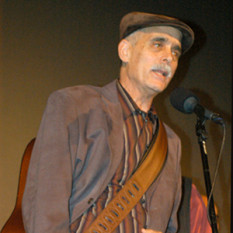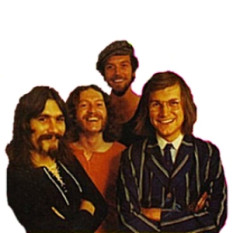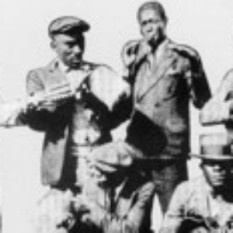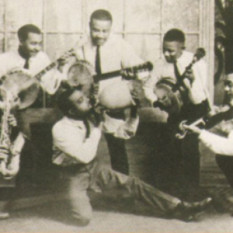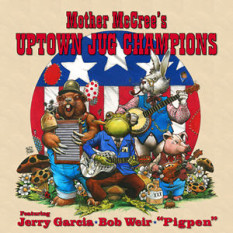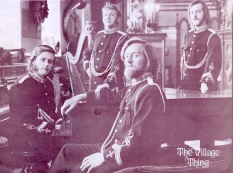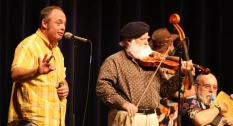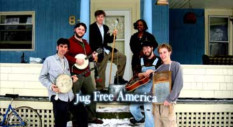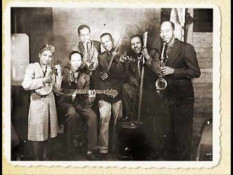A jug band is a band employing a jug player and a mix of traditional and home-made instruments. These home-made instruments are ordinary objects adapted to or modified for making of sound, like the washtub bass, washboard, spoons, stovepipe and comb & tissue paper (kazoo). The term jug band is loosely used in referring to ensembles that also incorporate home-made instruments but that are more accurately called skiffle bands, spasm bands or juke (or jook) bands (see juke joint) because they are missing the required jug player.
The eponymous jug is made by taking a jug (usually made of glass or stoneware) and buzzing the lips into its mouth from about an inch away. As with brass instruments, changes in pitch are controlled by altering lip tension, and an accomplished jug player could have a two octave range. The stovepipe (usually a section of tin pipe, 3" or 4" in diameter) is played in much the same manner, with the pipe rather than the jug being the resonating chamber. There is some similarity to the didgeridoo, but there is no contact between the stovepipe and the player's lips. Some jug and stovepipe players utilize throat vocalization along with lip buzzing, as with the didgeridoo.
The swooping sounds of the jug fill a musical role halfway between the trombone and sousaphone or tuba in Dixieland bands, playing mid- and lower-range harmonies in rhythm.
Early jug bands were typically made up of African American vaudeville and medicine show musicians. Beginning in the urban south, they played a mixture of Memphis blues (even before it was formally called the blues), ragtime, and Appalachian music. The history of jug bands is related to the development of the blues. The informal and energetic music of the jug bands also contributed to the development of rock and roll.
The well known Memphis jug bands were small street groups, generally on Beale Street, and had their own blues style, using guitar, harmonica, banjo and a jug to accompany their blues and country dance songs
The first jug bands to record were the Louisville and Birmingham jug bands. These bands played popular dance band jazz, using the jug as a novelty element. Vaudeville-blues singer Sara Martin and America's blue yodeler Jimmie Rodgers both employed these groups on their recordings.
The Memphis area jug bands were more firmly rooted in country blues and earlier African-American traditions. Gus Cannon's Jug Stompers and Will Shade's Memphis Jug Band,recorded the great songs that became the basis for the later jug band revival: "Stealin'", "Jug Band Music", "Whoa, Mule", "Minglewood Blues", "Walk Right In" and many others.
.

